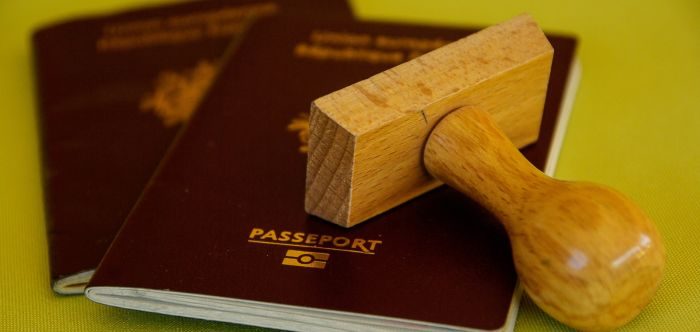It can be challenging to navigate the complexities of international travel, especially when it comes to visa regulations. Many travelers ask, “What happens if you overstay your conference visa in Canada?” This question is crucial for those attending conferences or events in Canada.
Overstaying your conference visa can lead to serious repercussions. You might find yourself ineligible for future visas, face possible fines, or even face deportation. Furthermore, such a violation could result in being barred from re-entering Canada for a certain duration.
It’s essential to be mindful of your visa’s validity to avoid these complications. Stay tuned as we delve deeper into this topic, offering insights and guidance to ensure your travel plans remain compliant and hassle-free.
Canadian Conference Visa- A Quick Overview
A Canadian Conference Visa is designed for individuals attending events, meetings, or conferences in Canada. This visa is a temporary and specific-purpose entry permit, tailored to suit short-term visitors. It’s a key tool for international delegates and professionals seeking to engage in global dialogues.

Applying for this visa requires submitting proof of the conference and intent to return post-event. It ensures that visitors can legally participate in their respective events without overstaying. Adhering to its terms is crucial for maintaining eligibility for future travel.
The duration of the visa is usually aligned with the event’s schedule. However, it’s important to leave Canada before the visa expires to avoid complications. Non-compliance can lead to penalties, ranging from fines to re-entry restrictions.
Types of Conference Visas in Canada
Canada offers a variety of conference visas to accommodate the diverse needs of international attendees. Each visa type is structured to cater to specific categories of visitors, ensuring streamlined entry for different purposes. Understanding these variations is key for a smooth application process and compliance with Canadian immigration policies.
Single Entry Conference Visa
This visa is ideal for attendees participating in a one-time event in Canada. It allows entry for the duration of the conference and expires upon leaving Canada. Applicants must demonstrate their intent to return to their home country post-conference. It’s suitable for those without recurrent travel needs to Canada.
Multiple Entry Conference Visa
For frequent visitors, this visa option provides greater flexibility. It permits multiple entries into Canada over a longer period, typically up to ten years. It’s beneficial for professionals to attend events or meetings in Canada regularly. This visa type is especially convenient for ongoing international collaborations or partnerships.
Business Persons and Business Delegations Visa
Tailored for business professionals and delegations, this visa facilitates participation in trade shows, business conferences, and meetings. It requires proof of business activities in Canada and adequate financial support. This visa is pivotal for fostering international business relations and networking.
Cultural Events Visa
Specifically for participants in cultural conferences, festivals, or events, this visa category focuses on cultural exchange. Applicants must be involved in a cultural event and possess relevant qualifications or experience. This visa enriches Canada’s cultural landscape by welcoming diverse international talents and perspectives.
In summary, Canada’s conference visa options are designed to cater to a wide range of international visitors, each with unique needs and purposes. The appropriate visa type is crucial for a hassle-free travel experience and successful participation in Canadian events. It’s essential to consider your specific requirements and travel plans when applying for a Canadian conference visa.
What Happens if You Overstay Your Conference Visa in Canada?
Overstaying a conference visa in Canada can have significant consequences, impacting your current stay and future travel. It’s essential to understand the implications of exceeding the authorized period of stay. This guide outlines what happens if you overstay your conference visa in Canada, highlighting key areas of concern.
Legal Consequences and Deportation:
Overstaying a visa is a violation of Canadian immigration laws. This infraction can lead to legal proceedings and possible deportation. It’s crucial to depart Canada before your visa expires to avoid legal complications. Legal actions taken can include a hearing or immediate removal, depending on the circumstances.
Authorities may also issue an exclusion order upon deportation. This order typically bars re-entry to Canada for a specified period. The duration of this bar can vary, often depending on the severity of the visa violation. Being deported also negatively impacts future visa applications to Canada.
Ineligibility for Future Visas and Travel Restrictions:
Overstaying can result in being marked as non-compliant in Canada’s immigration system. This record significantly reduces the likelihood of obtaining future Canadian visas. It’s important to adhere to visa durations to maintain a clean immigration record.
This ineligibility extends to visas for other countries as well. Many nations share immigration information, thus affecting your global travel prospects. Ensuring timely departure from Canada preserves your international travel opportunities and visa credibility.
Overstaying a conference visa in Canada has serious repercussions, including legal issues, deportation, and future travel restrictions. To maintain your travel freedom and avoid legal troubles, it’s imperative to respect the conditions of your visa. Always plan your visit within the timeframe of your authorized stay to ensure a trouble-free experience in Canada and elsewhere.
Pros and Cons of Overstaying Your Conference Visa in Canada
Overstaying a conference visa in Canada is a decision that comes with both potential benefits and significant drawbacks. While there may be short-term advantages, the long-term consequences are often detrimental. Here, we explore the pros and cons of such a decision concisely:
Pros
- Opportunity to extend your stay for personal exploration or unexpected professional engagements in Canada.
- Chance to network beyond the conference duration, potentially leading to future collaborations or opportunities.
- More time to experience Canadian culture, landscapes, and cities beyond the conference schedule.
- Possibility to attend additional events or meetings that may arise spontaneously during your extended stay.
- Flexibility to adjust travel plans in case of emergencies or unforeseen circumstances.
- Additional time to complete any pending work or research related to the conference topic in Canada.
- Potential for personal growth and new experiences that were not planned during the original trip.
Cons
- Legal consequences, including fines and potential deportation, due to violation of immigration laws.
- Future visa applications to Canada or other countries may be negatively impacted.
- Risk of being barred from re-entering Canada for a specific period, affecting future travel plans.
- Financial implications of an extended stay without proper planning, including higher living costs.
- Stress and uncertainty associated with staying in a country without legal status.
While there are some short-term benefits to overstaying a conference visa in Canada, the long-term consequences are predominantly negative. It’s crucial to weigh these factors carefully and always prioritize compliance with visa regulations to ensure a hassle-free travel experience.
What to Do After Overstaying Your Conference Duration?
After overstaying your conference duration in Canada, taking immediate action to address the situation and minimize potential consequences is crucial. Here are the steps to follow:
- Contact Immigration Authorities: Reach out to Canadian immigration authorities or a legal representative to explain your situation and seek guidance on the necessary steps.
- Prepare for Consequences: Be prepared for potential penalties, fines, or deportation. Ensure you have the financial means to cover any expenses that may arise.
- Depart Canada Promptly: Make arrangements to leave Canada as soon as possible to avoid further legal complications and to comply with immigration laws.
- Consult Legal Advice: Seek legal counsel to understand your rights and options, especially if you face deportation or other serious consequences.
- Maintain Records: Keep records of all communications and actions taken regarding your overstay. These documents may be valuable for legal purposes.
- Future Travel Plans: Understand that future travel plans to Canada and other countries may be affected. Be prepared for potential travel restrictions.
- Learn from the Experience: Reflect on the reasons for the overstay and use the experience as a lesson for future travels, emphasizing compliance with visa regulations.
Addressing an overstay of your conference visa in Canada requires prompt action, legal advice, and a willingness to accept potential consequences. Taking the right steps can help mitigate the impact of the overstay on your travel and immigration prospects.
Final Considerations
Traveling to Canada for a conference requires understanding and adhering to visa regulations. Filling out your application accurately and respecting the authorized duration of your stay is essential. Mistakes or overstays can lead to significant consequences, as discussed in our exploration of “What happens if you overstay your conference visa in Canada?”
If you find yourself in a situation where you’ve overstayed, it’s crucial to take immediate action. Contact immigration authorities, prepare for potential consequences, and seek legal advice. Timely departure is key to avoiding further complications.
Remember that the repercussions of visa errors or overstay can extend beyond Canada, affecting future travel plans. Therefore, learning from such experiences and prioritizing compliance with immigration laws is vital to ensure a trouble-free travel experience in Canada and elsewhere.







